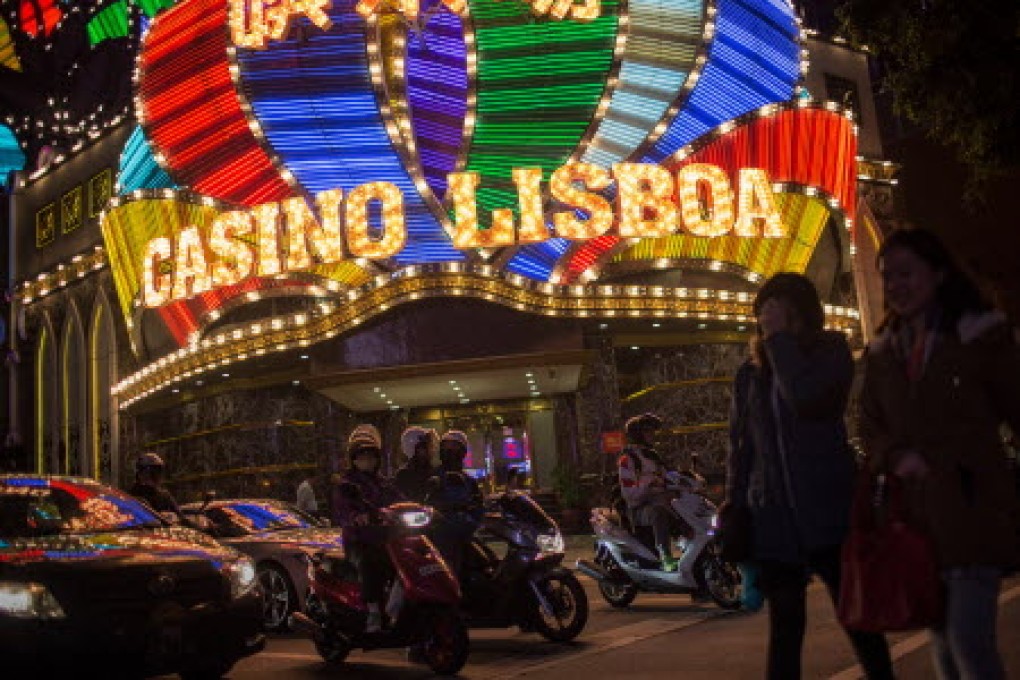Macroscope | Diversification the key for Macau casino operators

Ten years ago we saw that Las Vegas was overly reliant on very-high-net-worth gamblers, with its revenues stalling. We believe Macau today looks a lot like Las Vegas then. But there is one big difference. Macau’s unprecedented gambling boom has a built-in expiration date.
The 2001 law that ended Macau’s gaming monopoly and the six concessions that were subsequently granted stipulate that the licences are at all times the property of the government, which retains vast powers over the licensees and their gaming-related assets in the special administrative region. The licences held by SJM and MGM China will expire in 2020, while those of Wynn Resorts, Melco Crown Entertainment, Galaxy Entertainment and Sands China all run until 2022.
Gaming is the city’s largest employer, yet last year gambling revenue in Macau fell 2.6 per cent
Will all six be renewed? Will the government exercise its right to take over ownership of casino assets? Will operators be hit with tax increases or other new fees? Will new bidders be allowed into the market?
The implications for the gaming brands are huge. Gaming is the city’s largest employer, yet last year gambling revenue in Macau fell 2.6 per cent to 351.5 billion patacas, according to government data. It was the first decline since Macau began recording such data in 2002. Shares of Macau’s six licensed casino operators fell by an average of 40 per cent last year.
In the wake of the mainland’s corruption crackdown, and with increased competition from other cities that have embraced gaming such as Singapore and Manila, Macau’s position as the world’s premier gaming destination is under threat. Last year the total number of visitors to Macau actually increased, but revenues remained stubbornly down.
At the same time, casinos in Macau are being required by the central government to pursue “appropriate diversification” and provide more non-gaming amenities. Currently, Macau casinos’ non-gaming revenue ranges between 1 per cent and 10 per cent of the total.
It would therefore be wise for Macau gaming companies’ management to take a new look at the market and respond accordingly. Macau has huge potential beyond gaming, and if its operators embrace this idea, a new set of business opportunities will present themselves that will allow it to attract a new set of customers from a wider range of places.